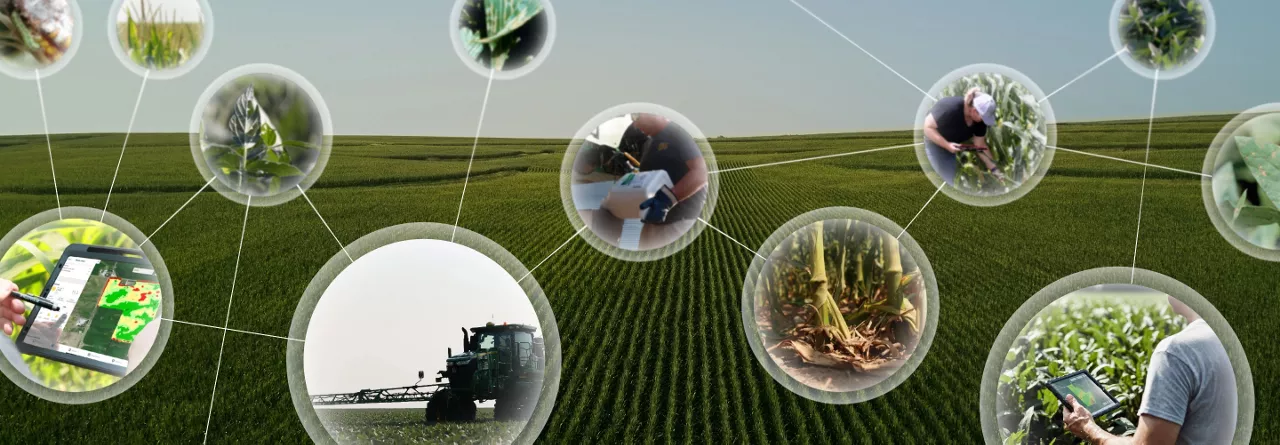
A Grower’s Guide to Weather-Driven Crop Protection
Amidst changing weather patterns, unpacking the connection between nature and crop health can be incredibly complex.
when it comes to fungicide, timing is everything. Just like planting and harvest, you have specific windows to strike while the fungi are vulnerable, and your crop is ready to fight.
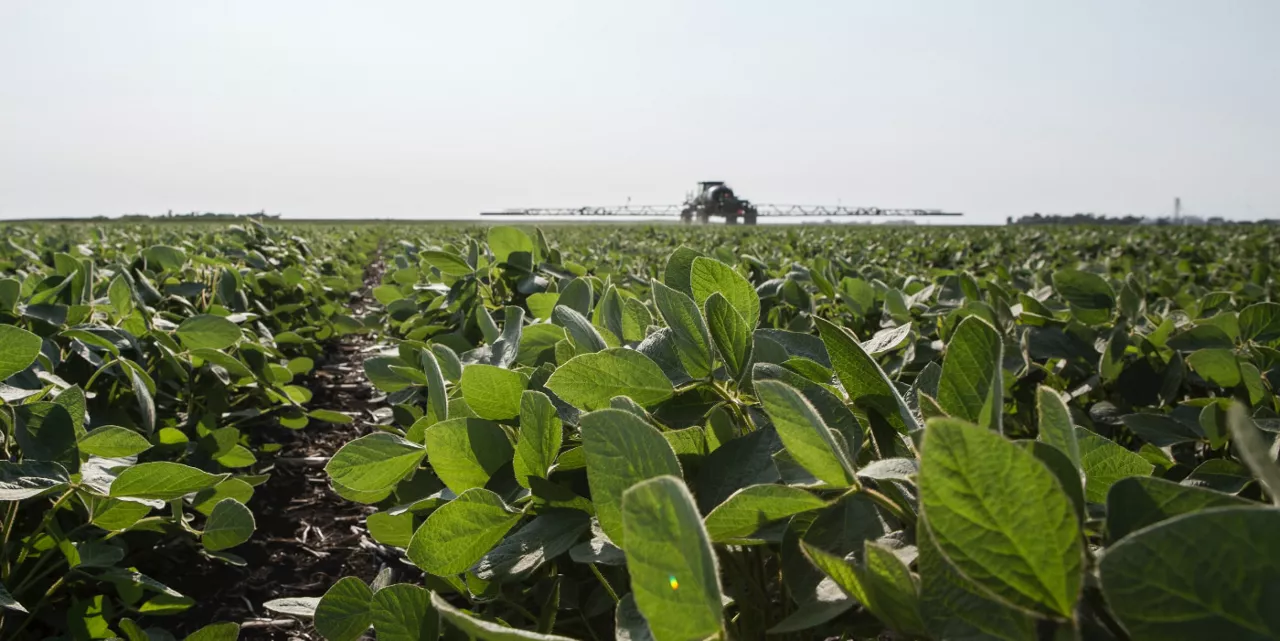
The dreaded fungus. It can be the peril to your profit margin, and something you literally can’t see coming. That’s why when it comes to fungicide, timing is everything. Just like planting and harvest, you have specific windows to strike while the fungi are vulnerable, and your crop is ready to fight.
VT and R1 are the optimal stages for a fungicide application for corn. However, for foliar diseases look to apply during V5 and V7. Scouting is of particular importance during this time window so you can catch the problem early.
Seed selection and treatments are essential for preventing disease, but there’s still the opportunity to stop yield-robbing fungus after the seed is in the ground. You may be wondering, how do I know if I need a fungicide application? It’s always advisable to consult with your agronomist — below are three factors to consider for those discussions.
Did you have colder than average temperatures after planting? And, did your seedlings take longer to break through the soil? This delayed maturity allows seedling diseases like Pythium and Fusarium to develop.
The best time to apply for a disease like white mold on soybeans is in growth stage R1. For foliar diseases, look to R3. You always want to intervene before the canopy closes.
If some of your fields had an abnormal amount of moisture, there could be a foliar fungus developing. One to watch out for is Anthracnose leaf blight. This disease develops soon after planting and loves corn-on-corn fields with reduced tillage.
The foliar leaves open up after intense rain or hail, inviting the fungus into the crop. FieldView™ can send hail alerts that notify you of expected hail and the potential crop damage.
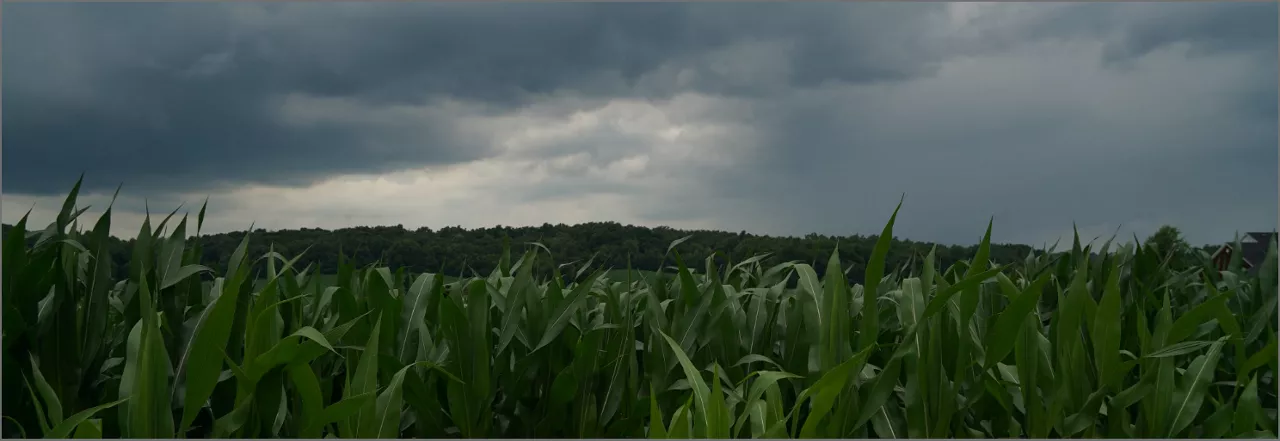
Pay attention to the clues mother nature is giving you. Is the crop flowering? Are the pods or grains beginning to fill? Is the canopy open or starting to close? These are all things you should look for or discuss with your crop scout.
When you scout with FieldView, every walk of the field helps build a rich, searchable history of your field health. You don’t need to wonder if you had a certain blight a few years back. You can know exactly which fields were infected, when the disease occurred, what was planted that year, and look at past yield data to compare the effectiveness of different treatments.
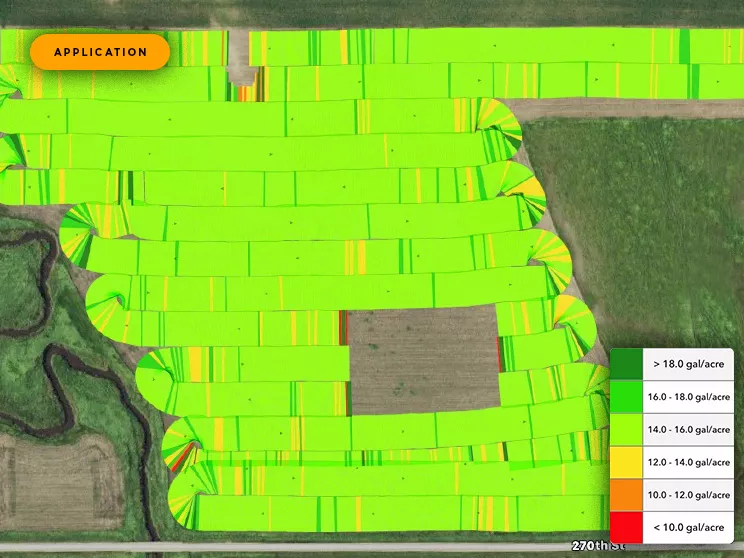
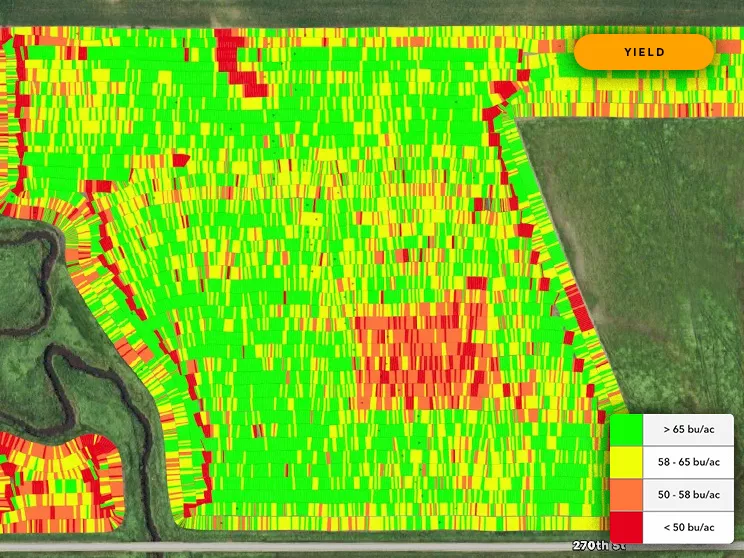
See how the application map correlates with the yield map.
There can be a balance between being effective and being cost-effective. That’s what makes data science such a promising tool for fungicides. If you collect your planting, application, and harvest data, you can find out definitively if that fungicide paid for itself.
Does your fungicide really need that adjuvant, surfactant, or wetting agent? Put it to the test and run some trials of your own. If you use the FieldView™ Drive, everything automatically maps as you change it up in the field. You can then go back and compare yield results at harvest.
Do your fields need the maximum rate? Would another class of fungicide work better? With FieldView, you can see how each application measures up at harvest - right from the combine cab.
FieldView also offers you the ability to share select information with your dealer, crop scout, or agronomist. Sharing relevant field data can help your team stay connected, solve problems remotely, and keep those fungi out of your fields. Best of luck this season.